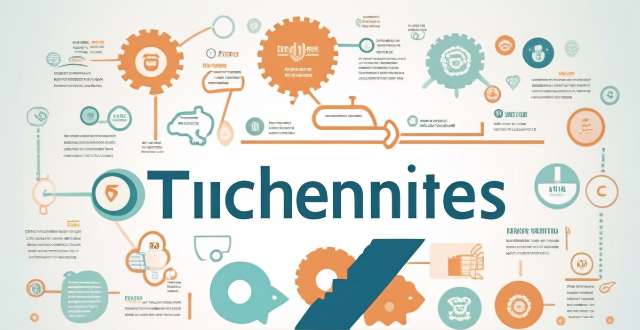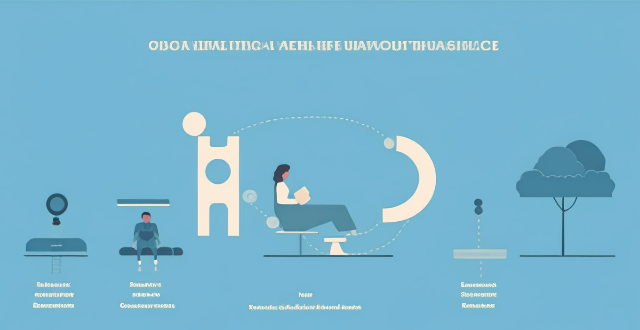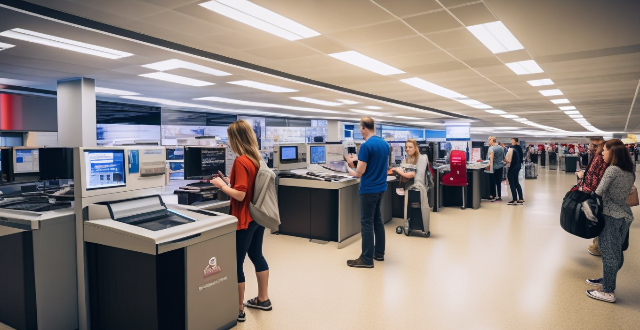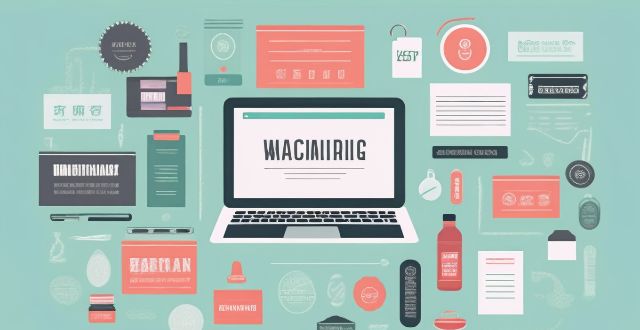Stage Approval

How long does it take to get approved for a mortgage ?
Getting approved for a mortgage is an essential step in the home buying process. The time it takes to get approved can vary depending on several factors, including your financial situation, the type of loan you are applying for, and the lender you choose. In this article, we will discuss the different stages of the mortgage approval process and provide an estimate of how long each stage typically takes. ## Stage 1: Pre-approval Pre-approval is the initial step in the mortgage approval process. During this stage, you will need to submit various documents to your lender, such as pay stubs, tax returns, and bank statements. Your lender will then review your financial information to determine if you qualify for a mortgage and what size loan you can afford. This stage typically takes around 1-3 business days. ### Documents needed for pre-approval: - Pay stubs from the past two months - W2 forms or tax returns from the past two years - Bank statements from the past two months - Credit report ## Stage 2: Underwriting Once you have been pre-approved, your lender will begin the underwriting process. During this stage, your lender will verify the information you provided during pre-approval and ensure that you meet all of their lending requirements. This stage typically takes around 5-7 business days. ### Tasks performed during underwriting: - Verifying employment and income - Checking credit history and scores - Evaluating assets and liabilities - Assessing property value and condition ## Stage 3: Closing If your lender approves your loan application, you will move on to the closing stage. During this stage, you will sign all of the necessary paperwork to finalize your loan. This stage typically takes around 3-5 business days. ### Tasks performed during closing: - Reviewing final loan documents - Signing loan agreements and disclosures - Paying closing costs and fees - Receiving keys to your new home ## Estimated Timeline for Mortgage Approval In summary, the estimated timeline for getting approved for a mortgage is as follows: 1. Pre-approval: 1-3 business days 2. Underwriting: 5-7 business days 3. Closing: 3-5 business days Overall, it typically takes around 9-15 business days to get approved for a mortgage. However, keep in mind that this timeline can vary depending on factors such as your financial situation, the lender you choose, and any potential delays or issues that may arise during the process.

What are the common challenges faced by teenagers during their developmental stage ?
The text discusses the common challenges faced by teenagers during their developmental stage, including physical changes such as body image issues and puberty, emotional changes such as mood swings and stress and anxiety, social changes such as peer pressure and bullying, academic pressure such as high expectations and time management, and identity development such as self-discovery and future planning. These challenges can have a significant impact on a teenager's overall development and well-being, and it is essential for parents, teachers, and caregivers to provide support and guidance during this critical stage of growth.

How does a co-signer affect my mortgage application ?
A co-signer is a person who signs a loan application along with the primary borrower. The co-signer agrees to take on the responsibility of repaying the loan if the primary borrower fails to do so. In this article, we will discuss how a co-signer affects your mortgage application. The credit score of both the primary borrower and the co-signer plays a significant role in determining the eligibility for a mortgage loan. A co-signer with a good credit score can improve the chances of getting approved for a mortgage loan. However, if the co-signer has a poor credit score, it may negatively impact the loan approval process. The income and debt-to-income ratio (DTI) of both the primary borrower and the co-signer are also important factors that lenders consider when evaluating a mortgage application. If the co-signer has a high income and low DTI, it can help strengthen the application and increase the chances of approval. On the other hand, if the co-signer has a low income or high DTI, it may negatively impact the loan approval process. Lenders also consider the employment history of both the primary borrower and the co-signer when evaluating a mortgage application. A stable employment history can demonstrate financial stability and reliability, which can positively impact the loan approval process. If the co-signer has a stable employment history, it can help strengthen the application and increase the chances of approval. The assets and liabilities of both the primary borrower and the co-signer are also taken into consideration by lenders when evaluating a mortgage application. If the co-signer has significant assets and few liabilities, it can help strengthen the application and increase the chances of approval. However, if the co-signer has significant liabilities or limited assets, it may negatively impact the loan approval process. In conclusion, a co-signer can have a significant impact on your mortgage application. Their credit score, income and DTI, employment history, assets, and liabilities are all factors that lenders consider when evaluating a mortgage application. It is important to choose a co-signer who has a good credit score, stable employment history, and low DTI to increase the chances of getting approved for a mortgage loan.

What is the process for obtaining approval from regulatory agencies for a new vaccine ?
The process for obtaining approval from regulatory agencies for a new vaccine includes pre-clinical trials, phase 1, 2, and 3 clinical trials, submission to regulatory agencies, and post-marketing surveillance. This process ensures that the vaccine is safe and effective before it is made available to the public.

What is a speed controller and how does it work ?
Speed controllers regulate the speed of electric motors and are used in various applications requiring precise speed control, such as industrial machinery. They consist of an input stage for power supply, a control stage using PID controllers to adjust voltage based on motor speed feedback, and an output stage that converts adjusted voltage for motor use.

How do national sports teams represent their country's image on the international stage ?
National sports teams play a crucial role in representing their country's image on the international stage. They are seen as ambassadors of their nation, showcasing values, culture, and spirit through their performances and behavior. Athletes inspire national pride and promote cultural exchange, uphold ethical standards, and embody national spirit. Successful performances enhance prestige, while handling setbacks with grace demonstrates resilience. Supporting national sports teams fosters national identity and pride globally.

How long does it typically take to secure funding from a venture capital firm ?
Securing funding from a venture capital firm involves several stages, including preparation, initial meetings and screening, negotiation and terms sheets, and closing and funding. The timeframe for each stage can vary depending on factors such as the industry, company growth stage, VC firm investment criteria, and market conditions. The preparation phase involves researching and identifying suitable VC firms, preparing pitch materials, and networking and outreach. The initial meetings and screening stage includes first meetings with VC firms and due diligence and screening. The negotiation and terms sheets phase involves investment terms negotiation and signing the terms sheet. Finally, the closing and funding stage includes legal and financial due diligence and receiving funding and post-investment support.

How does the claims process work after I've bought insurance ?
After purchasing insurance, understanding the claims process is crucial. The process typically involves documentation and preparation, filing a claim, assessment and investigation, approval or denial, receiving benefits, and considering deductibles/excesses and policy renewal impacts. It's important to gather evidence, notify your insurer, complete a claim form, provide necessary details, review the initial assessment, potentially undergo an investigation, receive approval or denial, arrange for payment, follow up as needed, pay any deductibles/excesses, and be aware of potential premium impacts at renewal. Refer to your policy documents for detailed instructions tailored to your insurance provider's processes.

How are vaccines distributed globally ?
The global distribution of vaccines is a complex process involving various stakeholders, including governments, international organizations, pharmaceutical companies, and healthcare providers. The article discusses the different aspects of vaccine distribution worldwide, highlighting the challenges and opportunities in this critical field. It covers topics such as manufacturing and production, regulatory approval and licensing, international collaboration and partnerships, funding and financing mechanisms, logistics and delivery, administration and coverage, and more. By addressing these challenges proactively and leveraging available opportunities, we can work towards achieving equitable access to vaccines for all populations worldwide.

How long does it take to complete a network expansion project ?
Completing a network expansion project involves several stages, including planning and design, procurement, installation and configuration, testing and troubleshooting, and deployment and training. The duration of each stage can vary depending on factors such as project size, resource availability, and team efficiency. A general timeline for completing a network expansion project is 6 months to a year.

Is there a specific age or stage in an athlete's life where they are most likely to reach peak performance ?
Athletes tend to reach their peak performance during their late teens to early twenties due to physical maturity, mental maturity, training and experience, and lifestyle factors. Physical maturity includes muscle development, cardiovascular fitness, and speed and agility improvements. Mental maturity involves focus and concentration, decision-making skills, and mental toughness. Training and experience lead to skill development, tactical understanding, and adaptability. Lifestyle factors such as nutrition, rest and recovery, and educational commitments also play a role in an athlete's potential for reaching peak performance.

How long does it typically take to develop a new vaccine ?
Developing a new vaccine is a complex and time-consuming process that involves multiple stages of research, testing, and approval. It typically takes several years to develop a new vaccine, with the duration varying depending on factors such as the type of pathogen being targeted, the availability of existing research, and regulatory requirements. The process includes research and development, preclinical testing, clinical trials in humans (Phases I, II, and III), regulatory approval, and manufacturing and distribution.

How does peer pressure affect the mental and emotional development of adolescents ?
**Peer Pressure and Its Impact on Adolescent Development** Peer pressure significantly influences the beliefs, behaviors, and development of adolescents. Understanding its effects is crucial for promoting healthy growth. **Definition and Nature:** Peer pressure involves social and psychological influences that lead to conformity. It can be positive or negative. **Impact on Mental Health:** Constant peer influence can lead to stress, anxiety, depression, and self-esteem issues. **Effects on Emotional Development:** Adolescents may become dependent on peers, strain familial relationships, and face challenges in developing emotional intelligence. **Long-Term Implications:** Peer pressure can shape adult personality traits, career choices, and interpersonal skills. **Mitigating Negative Effects:** Parents, educators, and mental health professionals should encourage open communication, build resilience, and promote self-awareness among adolescents.

How do carbon offset projects get verified ?
The verification process for carbon offset projects involves multiple stages, including project registration, preparation of a Project Design Document (PDD), review and approval by third-party auditors, ongoing Monitoring, Reporting, and Verification (MRV), certification, issuance of credits, continuous improvement, and re-verification. This process ensures the genuineness, effectiveness, and sustainability of these projects in mitigating climate change. Key points to remember include the importance of transparency, independent verification, continuous monitoring, and adaptability.

How do I apply for a student loan ?
This text provides a comprehensive guide on how to apply for a student loan. It outlines nine steps, including determining needs, researching loan options, checking eligibility requirements, gathering documents, completing and submitting the application form, waiting for approval, signing promissory notes and loan agreements, and receiving disbursement of loan funds. The guide emphasizes the importance of understanding different loan options and their terms and conditions before applying. It also highlights the need to gather all necessary documents and provide accurate information in the application form. Overall, this text is an essential resource for students seeking financial assistance for their education.

Can I apply for a tourist visa online ?
Applying for a tourist visa online is convenient and efficient, with requirements including a valid passport and proof of funds. The process involves filling out an electronic form and uploading supporting documents. Payment is typically required through a secure gateway, and approval may require additional documentation or an interview. Processing times vary, so it's important to apply well in advance of travel.

What challenges have been faced in vaccine distribution ?
Vaccine distribution faces challenges in manufacturing capacity, logistics, geopolitics, regulatory approvals, public perception, financial constraints, technology, and coordination efforts. Addressing these requires global collaboration to ensure equitable access to vaccines worldwide.

How does government budgeting differ from corporate budgeting ?
Government budgeting and corporate budgeting differ in purpose, constraints, methodologies, and time horizons. Government budgeting aims to allocate resources for public services and maintain economic stability, while corporate budgeting focuses on profit maximization and risk management. Government budgets require legislative approval and face public scrutiny, while corporate budgets are influenced by market forces and shareholder pressure. Methodologies used in government budgeting include zero-based budgeting and performance budgeting, while corporations use static budgeting and activity-based budgeting. Government budgeting often has a multi-year perspective, while corporate budgeting typically follows an annual cycle.

What is the process of applying for a mortgage ?
The process of applying for a mortgage involves several steps, including determining your budget, checking your credit score, shopping for lenders and loan programs, gathering necessary documents, submitting your application, underwriting and approval, and closing the deal. It's important to carefully review all paperwork and pay closing costs before officially becoming a homeowner.

What documents do I need to exchange currency ?
Exchanging currency at Bank of China or any other financial institution requires presenting valid personal identification documents and relevant materials proving the necessity for the exchange, including proof of need and a usage declaration. The process adheres to specific regulations set by the State Administration of Foreign Exchange, such as annual total amount management and verification and approval procedures. It is crucial to understand these requirements and check with your bank beforehand to ensure a smooth currency exchange experience.

How does price matching work with online shopping offers ?
Price matching is a policy adopted by many online retailers where they promise to match the price of a product if it is found at a lower price on another website. This is done to ensure that customers get the best deal possible and to remain competitive in the market. The process involves finding the product, searching for lower prices, contacting the retailer, waiting for approval, and completing the purchase at the lower price. Price matching allows you to save money, shop with confidence, and enjoy convenience.

What role does public opinion play in determining award winners ?
**Summary:** Public opinion significantly influences award winners, particularly in fields like entertainment and sports where audience approval is crucial. It affects voting processes, reflects current trends, impacts marketing, and raises criticisms about quality vs. popularity. Award organizations strive for a balance that considers public opinion without overshadowing artistic merit and industry standards.

What are the legal requirements for homeschooling in different states ?
Homeschooling laws vary by state and include requirements for notification, curriculum oversight, assessment and testing, and health. Examples from California, Texas, New York, and Florida demonstrate the diversity in regulations.

How many teams participate in the UEFA Champions League ?
The UEFA Champions League is an annual football competition organized by the Union of European Football Associations (UEFA). It features the top-division European clubs competing against each other for the prestigious title. The number of teams that participate in the UEFA Champions League can vary depending on several factors such as performance in previous seasons and qualification rounds. Before the actual group stage of the UEFA Champions League begins, there are several qualification rounds where teams from lower-ranked associations compete for a spot in the main tournament. These qualification rounds usually take place over the summer months before the start of the new season. Typically, around 32 teams qualify for the group stage of the UEFA Champions League each year. This number was increased from 16 teams when the current format was introduced in 1999. In summary, the UEFA Champions League is a highly competitive and prestigious football tournament that features some of the best clubs from across Europe. The tournament consists of several qualification rounds followed by the main tournament, which includes both the group stage and knockout phase.

What is the difference between angel investors and venture capitalists ?
The main differences between angel investors and venture capitalists are: - Investment Amount: Angel investors typically invest smaller amounts of money, while venture capitalists invest larger sums. - Investment Stage: Angel investors tend to invest in early-stage companies, while venture capitalists invest in later-stage companies that are further along in their development. - Risk Tolerance: Angel investors are generally willing to take on higher levels of risk than venture capitalists. - Involvement Level: Angel investors tend to be more hands-on and involved in the companies they invest in, while venture capitalists typically have less direct involvement.

How are carbon credits traded and monitored ?
Carbon credits are a crucial component in the global fight against climate change. They represent a certificate indicating that one tonne of CO2 (or its equivalent in other greenhouse gases) has been either reduced, avoided, or sequestered from the atmosphere. The trading and monitoring of carbon credits involve several key steps and players, ensuring that the reductions are real, measurable, and verifiable. Trading platforms include centralized exchanges like the European Energy Exchange (EEX) and Chicago Climate Exchange (CCX), over-the-counter (OTC) markets for direct transactions between two parties, and brokers who facilitate buying and selling by matching buyers with sellers. Monitoring and verification processes include project registration and approval, third-party audits, issuance of credits, transaction recording, and retirement of credits. Key players involved in the process include governments, project developers, verifiers, registrars, brokers and traders, and compliance entities. Challenges and considerations include standardization, double-counting, persistence, transparency, and environmental integrity.